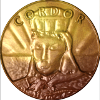Treatise on the District Rule: A Hybrid Drow Governance Model
As the city of Andunor evolves, welcoming diverse peoples and navigating the tides of shifting power, the Drow find themselves at a critical juncture. Once bound tightly beneath the web of Lolthite orthodoxy, their society must now reconcile ancient hierarchies with the demands of a more inclusive and pragmatic age. This proposed model presents a hybrid form of governance: one that preserves the core structure of Udos Dro'Xun while incorporating the democratic practices emerging from modern settlement life. It aims to strike a balance between tradition and adaptability, offering stability without stagnation and ambition without descent into anarchy.
I. NOBLE COUNCIL
At the core of this model lies the district's governance through a stratified system of Houses divided as either Noble or Common. These Houses may consist of Drow and non-Drow alike, with no restriction based on race or religion. Citizenship and active presence within the district are the only universal requirements for recognition.
At the apex of district governance is the Noble Council, comprised of four Noble Houses at any given time. This number is fixed to ensure balanced deliberation and prevent overreach. The Council determines the district's long-term policies, issues binding decrees, and collectively embodies the law. In their collective voice lies the law, and in their unity, the strength of the district.
Though Noble Houses hold dominion, Common Houses serve a vital role as the lifeblood of civic engagement and as aspirants to greater authority. Prestige and position are earned, not inherited by blood alone. It is through action, loyalty, and relevance that a House may ascend.
II. THE COUNCIL AGENT
Elected by popular vote from the citizenry, the Council Agent acts as executor of the Noble Council's will. This individual is not a sovereign ruler, but a steward, empowered to implement Council directives, mediate between the Houses, and represent the voice of the people.
The Agent holds limited authority, primarily used to resolve Council deadlocks or provide executive leadership during moments of uncertainty. They are a bridge, neither above the Council nor beneath it, offering flexibility in governance and a face of unity during times of strain.
III. ASCENSION & DEMOTION
When a seat among the four Noble Houses becomes vacant by dissolution, disgrace, or demotion a new House may be elevated by majority vote of the remaining Noble Houses. This honor is granted to those Houses whose contributions, influence, or service have proven invaluable to the district.
In contrast, should a Noble House fall into inactivity, disloyalty, or defiance of the district's interests, it may be demoted to Common status by majority vote of the Council. This mechanism serves not only as a safeguard but as a means of renewal, reminding all that nobility must be maintained, not merely inherited.
IV. LAND, POWER & RESPONSIBILITY
A House's power is not derived from territory or wealth, but from presence and participation. Influence is measured by its voice in civic affairs, its visible role in district life, and the trust it commands. Citizenship and ongoing contribution are the only universal requirements.
All Houses, regardless of standing, bear responsibility for the functional cohesion of the district and its defense. While Common Houses may lack direct ruling authority, they influence the election of the Council Agent and contribute to district stability and discourse.
In the event of discord or uncertainty, the Agent stands not above the Noble Council but between the will of the people and the governance of the elite, serving as a political stabilizer rather than a ruler.
CONCLUSION
By weaving together the traditional threads of Drow hierarchy with the practical fibers of district democracy, this hybrid model creates a governance both formidable and adaptive. It preserves the tradition of caste while offering pathways of merit. It allows power to concentrate but not calcify. Through deliberate structure and codified flexibility, it offers a system that can endure the pressures of internal ambition and external upheaval alike. In doing so, it honors the legacy of Udo Dro'Xun while forging a future in which all may find their place, noble or common, Drow or otherwise.
Day 19, Month 10 (Marpenoth (Leafall)), 186 AR
Adelyn Belle'rose
